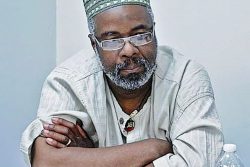As the new government continues its attempts to ascertain the state of the various ministries they have inherited, the Ministry of Foreign Affairs has dispatched a team to assess the accounts and administration of the Guyana High Commission in India.
The commission has for several years been under the sole purview of the High Commissioner Ronald Gajraj. Following the change in government he tendered his resignation and returned home.
Gajraj was assigned to the post after serving as Minister of Home Affairs from January, 1999 to May, 2005. In 2005, he was forced to resign as Home Affairs Minister after local and international pressure was applied to the Bharrat Jagdeo administration due to allegations linking the minister to the activities of a death squad.
Since his appointment as High Commissioner to India, the diplomat has been serving under a series of contracts, the terms of which he has personally drafted, a source at the Ministry revealed to Stabroek News. These contracts were then provided to the Office of the President and signed by the Head of the Presidential Secretariat Dr Roger Luncheon.
Gajraj’s present contract, which Stabroek News was able to view has several unusual elements.
Among these provisions are a monthly salary in excess of $1M, an amount which is more than $300,000 over the remuneration offered career diplomats in similar posts. His station allowance for the High Commission is a whopping US$8,500 almost twice that of missions in other parts of the world.
Also unusual was a clause that states that the government “will pay the costs of primary, secondary or tertiary education of the children of the person engaged”.
Further, under the terms of Gajraj’s contract the Government of Guyana bears the cost of travel and accommodation of his “spouse and children under the age of 30”. Other contracts allow only for spouses and children under the age of 18 to enjoy more limited benefits.
The Ministry has dispatched an accountant and Foreign Service Officer to examine the operations of the ministry since there was no accountant on site during his tenure.
However Stabroek New understands that the accountant dispatched to conduct this examination is the same accountant who monthly approved the release of funds to the mission without receiving an accounting of the spending at the mission or an audit of its operations though the accountant was aware that “no expenditure statements were sent into the head office”.






